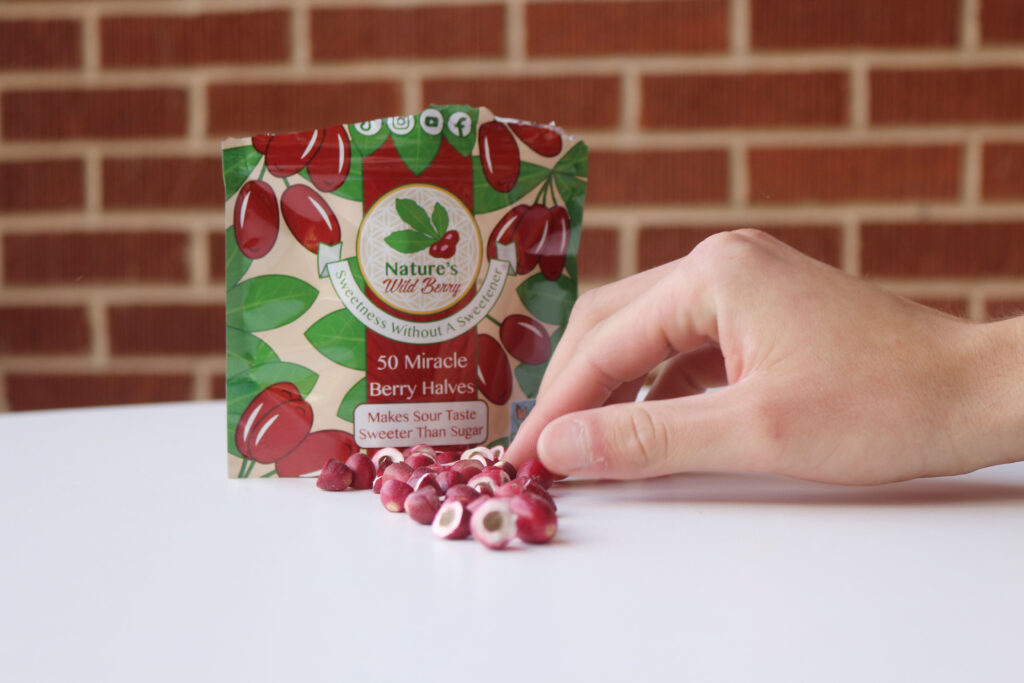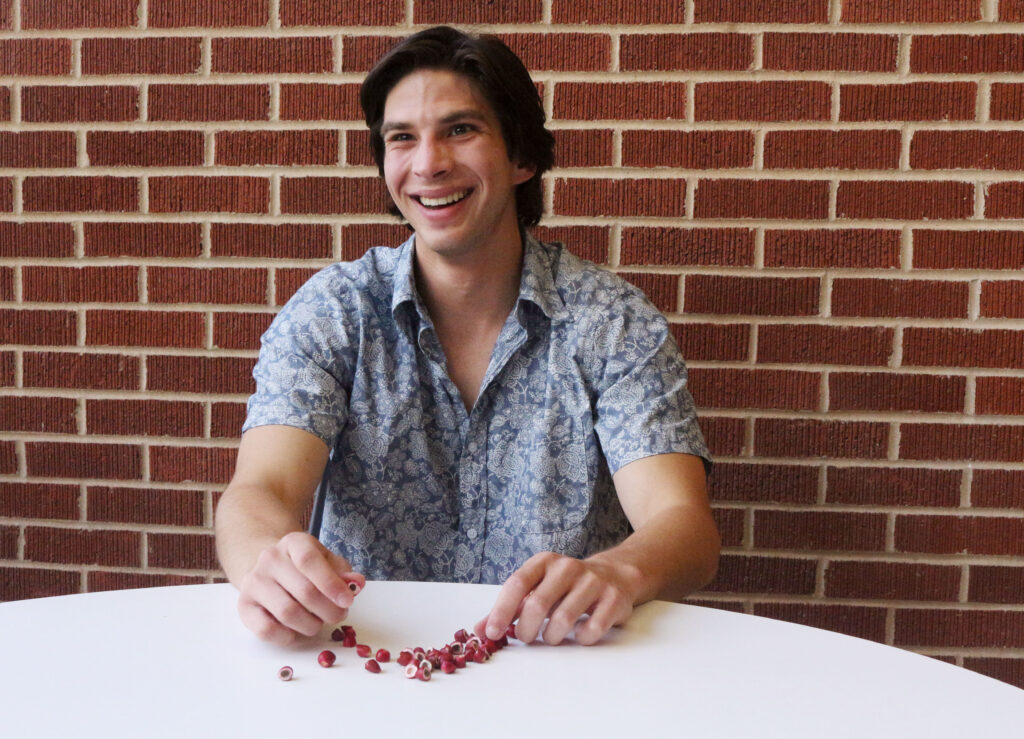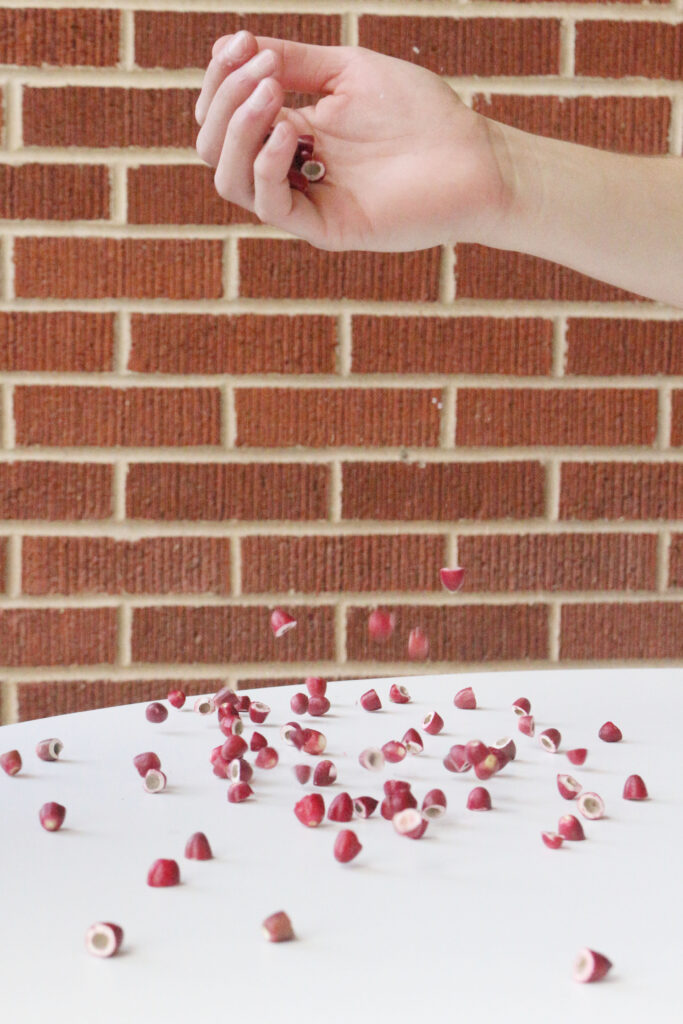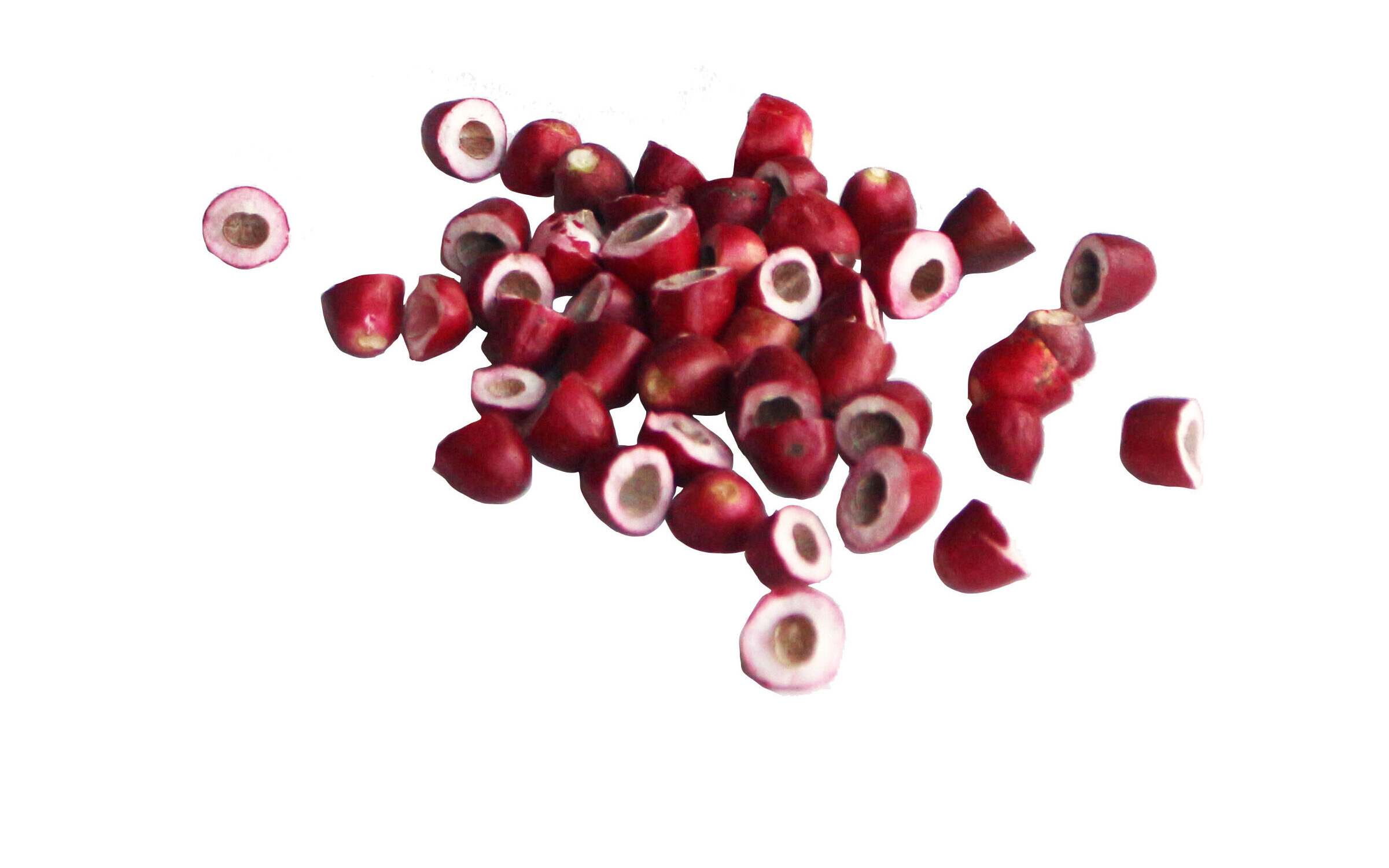DIG IN: Clustered together, it doesn’t take many berries to taste the effects. With the seed hollowed out, the package comes with the berries pre-cut to let you try it out over and over again. Photo by Rachel Chiang.
Sour, Then Sweet
Instead of bracing for the tartness of a lemon, prepare your brain for the sweetness of a strawberry using this one Miracle Berry.
Story By Lukas Reyes
I will show you how to make the sweetest lemonade you’ve ever tasted. You’ve probably never tasted sweet like this before. It doesn’t quite taste like cane sugar was used, nor honey nor any other type of sweetener. It is so sweet, in fact, that it is almost overwhelming. All you need is the following ingredients: 100% lemon juice and a small red berry from Africa. The steps are simple: You eat the berry and drink the juice.
The process of taste seems relatively straightforward. As person eats food, the food rubs onto the taste buds on the tongue, which then sends that information to the brain. But the taste receptors and the brain can be tricked and confused by a berry the size of a coffee bean, which has the power to alter our senses.

Synsepalum dulcificum, more widely known as the miracle berry, grows on shrubs native to West Africa, under conditions similar to subtropical Florida. The berry contains a protein called miraculin, which binds to taste receptors on the tongue and allows them to interpret acidic molecules as sweet. In other words, it tricks your taste buds into thinking that sour things are actually sweet.
Typically, they can be bought as tablets with miraculin extract, or as freeze-dried berries. Upon consumption, the sweetening effects will last 15 minutes to two hours, depending on the potency. The miracle berry’s extraordinary properties are not just limited to lemons but apply to any acidic food.
After eating the miracle berry, I tried a variety of foods. Pineapple became ripened to perfection, and was the best of what I tried, with all of its acidity gone and a balanced sweetness replacing it. Strawberries were different too, as if I had rolled them in sugar beforehand. However, I did find that the taste of the foods does not change, but rather gets modified. Foods become sweeter but carry most of the same flavors as they did before.
I decided to try the most acidic thing I had in my kitchen: vinegar. A small sip of vinegar greeted me with sweetness as well, but it was quickly overtaken by the harsh flavor, and was by far the least enjoyable trial I did.

The experience was unusual, to say the least. Perhaps it was my previous knowledge of the typical flavors of the foods I was tasting, but the sweetness seemed unnatural. Different from an artificial sweetener, but certainly not like natural sweeteners. It was interesting that each thing I tried was modified in a different way. The pineapple lost the acidic edge that so often accompanies it, while the strawberries simply became sweeter, and the vinegar’s flavors became too powerful for the berry to sustain its effects. I expected a consistency in the flavor modification, but instead found that miraculin only affects a specific part of a flavor composition. Aside from its mind tricks, this berry and the shrub it grows on are capable of much more than just taste deception.
There is a wide range of applications for this berry and its components. Studies have shown a potential for the infusion of this chemical into the foods we eat, with successful infusion with miraculin and lettuce. This successful integration shows the protein to have a possible use with typically unappealing or unappetizing foods, which can then be infused with this protein to enhance their sweetness and induce positive reactions from the consumer. Possible applications can also be seen in diet for a range of populations including children, diabetics and the average picky eater.
While the berry certainly has extraordinary properties, the other parts of shrub it grows on have been used in traditional Western African medicine for centuries. In Benin, the leaves are used as treatment for hypothermia and diabetes. Nigerians also use the leaves for diabetes treatment as well as a cancer treatment and to alleviate male infertility.

Currently, the FDA has banned the use of the chemical as an artificial sweetener. That decision has not been revised or modified since 1974. However, it is commercially available and can be bought at stores or online. Although its potential applications and benefits have not been determined in a modern scientific perspective, for hundreds of years, traditional Western African medicine has proven its applications and benefits through their treatments extracted from this plant. The fittingly named miracle berry could prove to be just that: a miracle.

